Myrmecocystus placodops
739,90 zł – 1299,90 zł
Myrmecocystus placodops is a redhead ant species with a black body. The colony is monogyny and consists of 10,000 workers. These ants primarily feed on food insects, fruits, vegetables, and seeds. They require a humidity level of 50-70% in the arena and 70-90% in the nest. The size of the queen is 14-16mm and the workers range from 6-11mm. The development rate of this species is medium.
| Behavior | |
|---|---|
| Difficulty in breeding | |
| Origin | |
| The size of ants | |
| Wintering |
Myrmecocystus placodops: The Fascinating World of the Honey Ants
Discover the mesmerizing world of Myrmecocystus placodops, a unique ant species known for their incredible abilities and intriguing behaviors. From their monogynous colony structure to their distinct coloration and diverse diet, these ants offer a captivating glimpse into the complex world of ant colonies.
Colony Structure
Colony Type: Monogyny
Colony Size: Up to 10 000 workers
Development Speed: medium
Size and Color:
- Queen: 14-16 mm
- Workers: 6-11 mm
Their distinct coloration is characterized by a reddish hue combined with a black body, creating a visually striking appearance.
Nutrition:
- Food insects (such as cockroaches and crickets) dead, or live if colony is big
- Syrup (a mixture of water and honey or sugar, with a ratio of 4/3 water:1)
- Fruits and vegetables
- Jelly
- Cooked chicken without salt, shrimps
- Honey
Don’t forget to check out our food products to ensure a well-balanced diet for your colony!
Humidity and Temperature:
- Humidity: Arena: 40-60%, Nest: 50-70%
- Temperature: Arena: 23-30 °C, Nest: 22-26 °C
Distinctive Features of the Species
One fascinating feature of Myrmecocystus placodops is their unique ability to store carbohydrates in their bellies, just like honey ants. These specialized ants fill their bellies to a large size and then hang upside down from the ceiling of their nest, creating a stunning sight to behold. This behavior contributes to the colony’s energy reserves and helps sustain them during times of scarcity.
In addition, Myrmecocystus placodops is known to be an aggressive species, displaying strong defensive behaviors when their colony is threatened. This adaptability and defense mechanism make them resilient in the face of challenges.
Furthermore, Myrmecocystus placodops exhibits a medium development rate, allowing for quick establishment during the installation phase. This characteristic enables the colony to grow and thrive at a steady pace, ensuring the continuation of their lineage.
Recommended Nests for Breeding
When creating an optimal habitat for Myrmecocystus placodops, consider using nests made of acrylic, cork, gypsum, or aerated concrete. These materials provide a suitable environment for nesting, allowing the colony to build and expand their intricate tunnels and chambers.
Embark on a captivating journey into the world of Myrmecocystus placodops, a species of ants that captivate with their unique behaviors, striking coloration, and efficient colony structure. Witness their incredible ability to store carbohydrates and defend their colony with tenacity. With the right care and environment, you can create a thriving habitat for these fascinating ants and observe their behaviors firsthand.


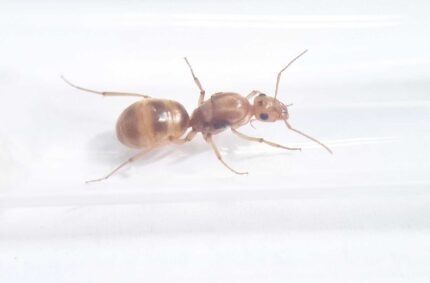
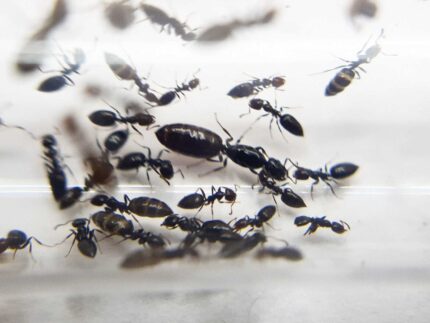
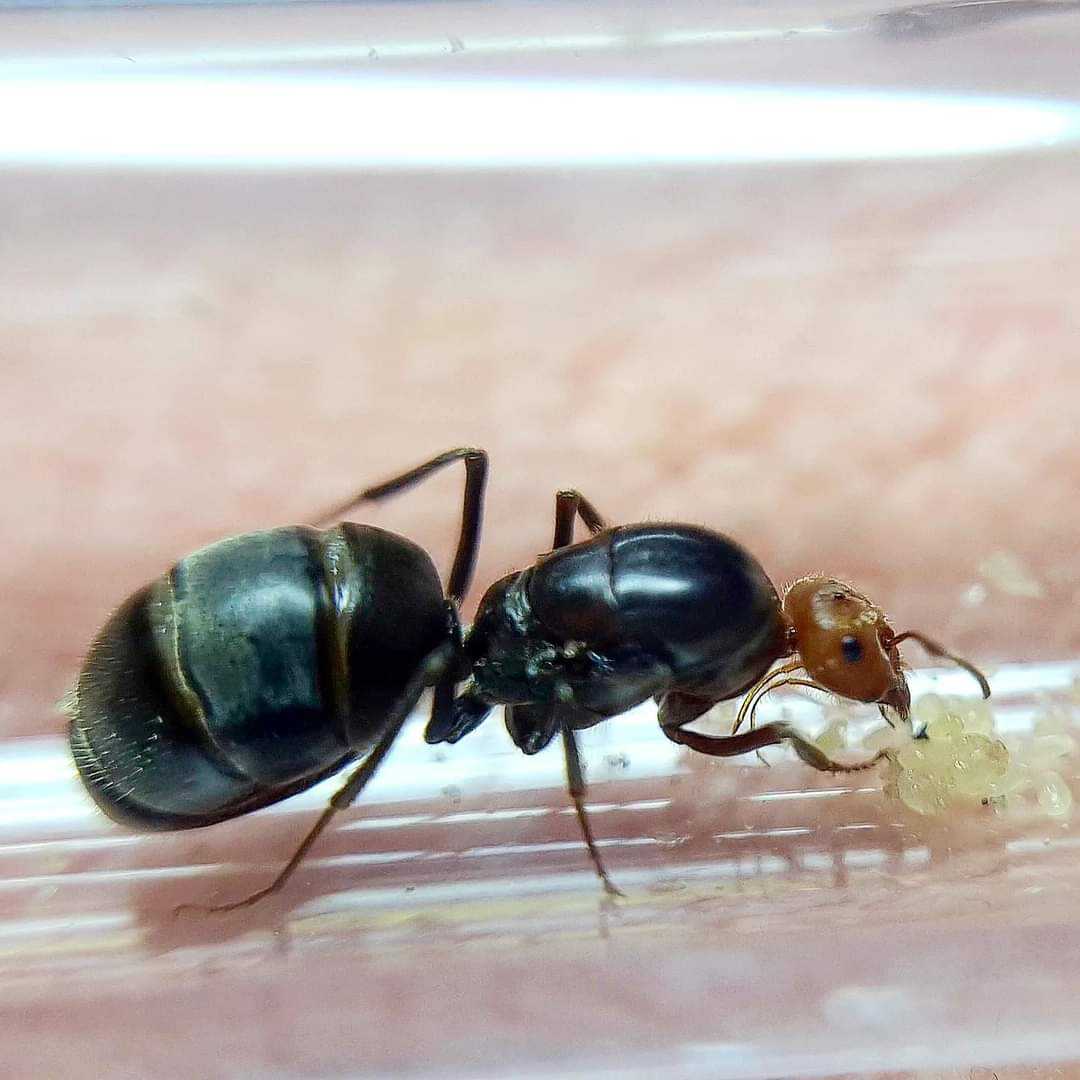
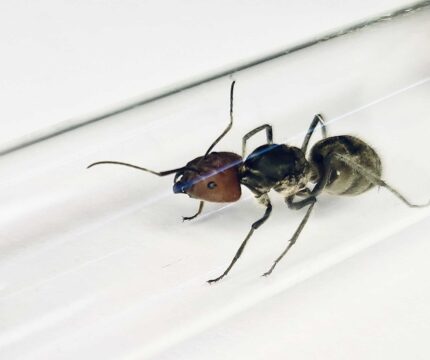
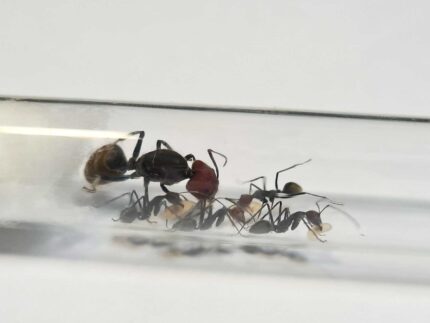
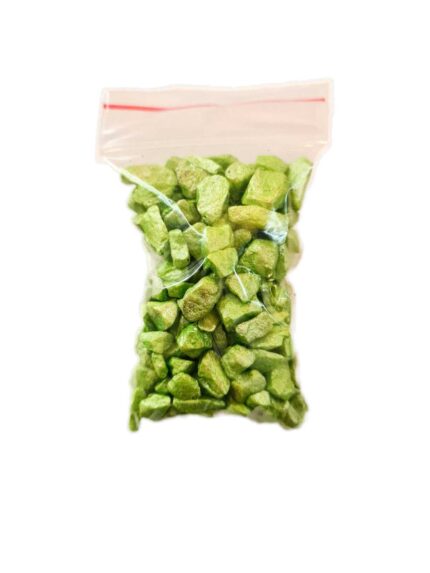
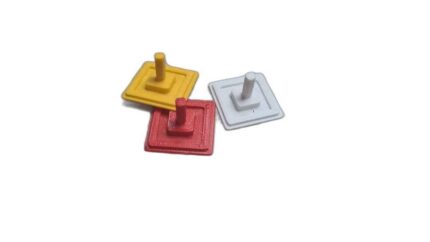
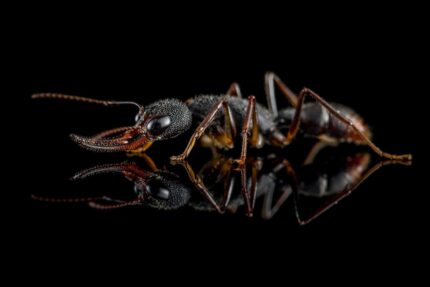
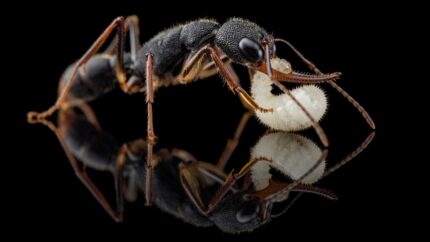
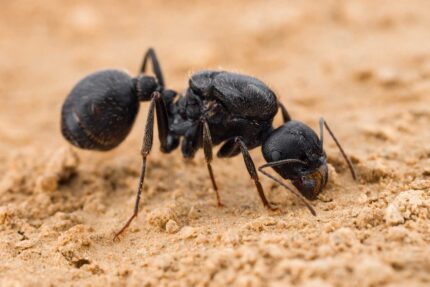
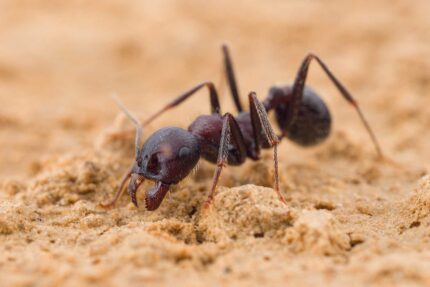
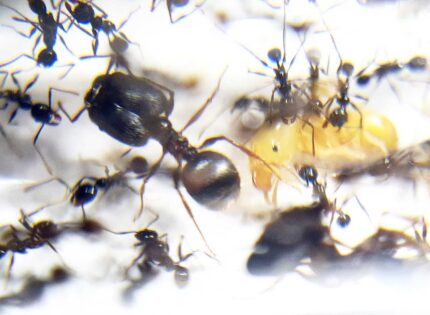
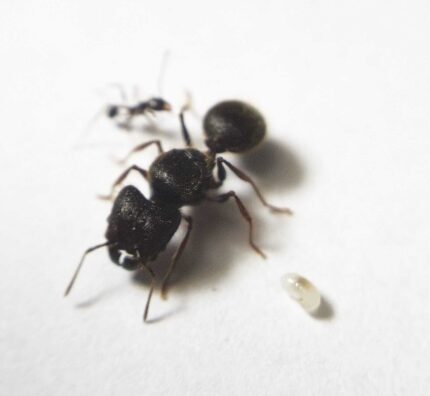
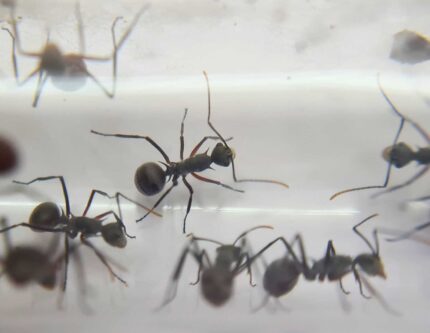
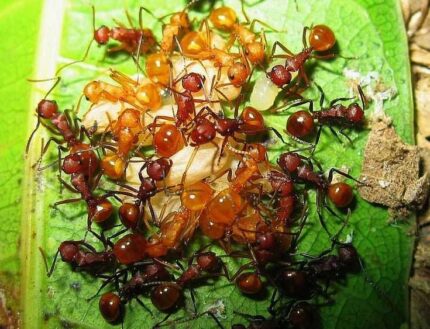
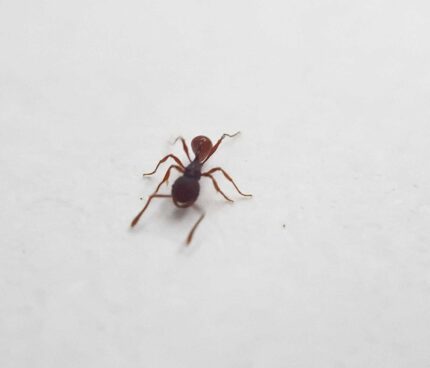
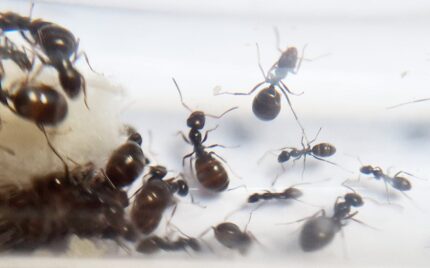
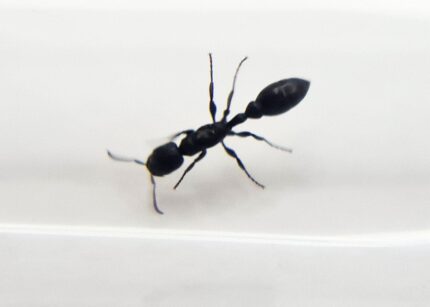
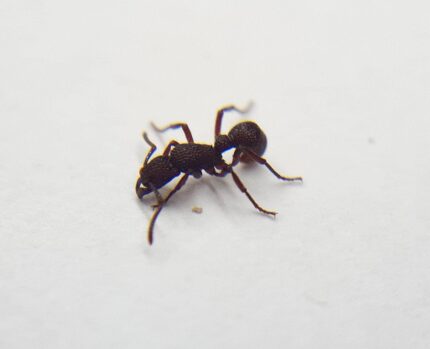
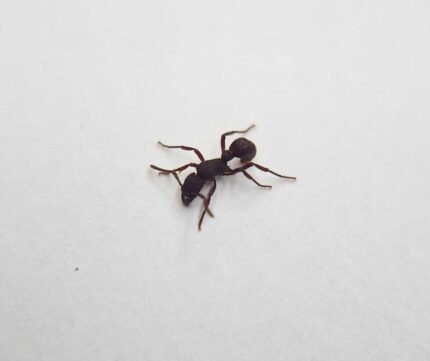
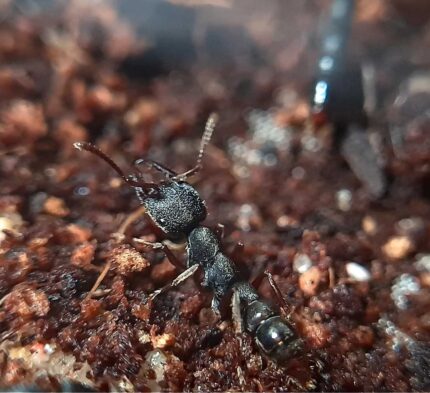
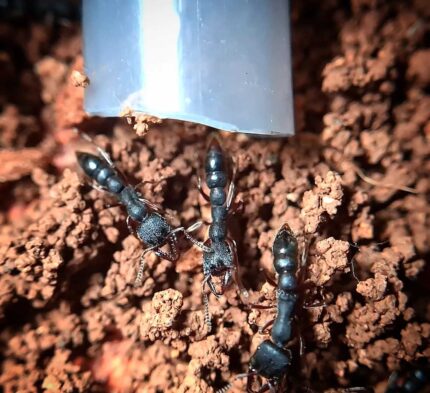
Valoraciones
Clear filtersNo hay valoraciones aún.